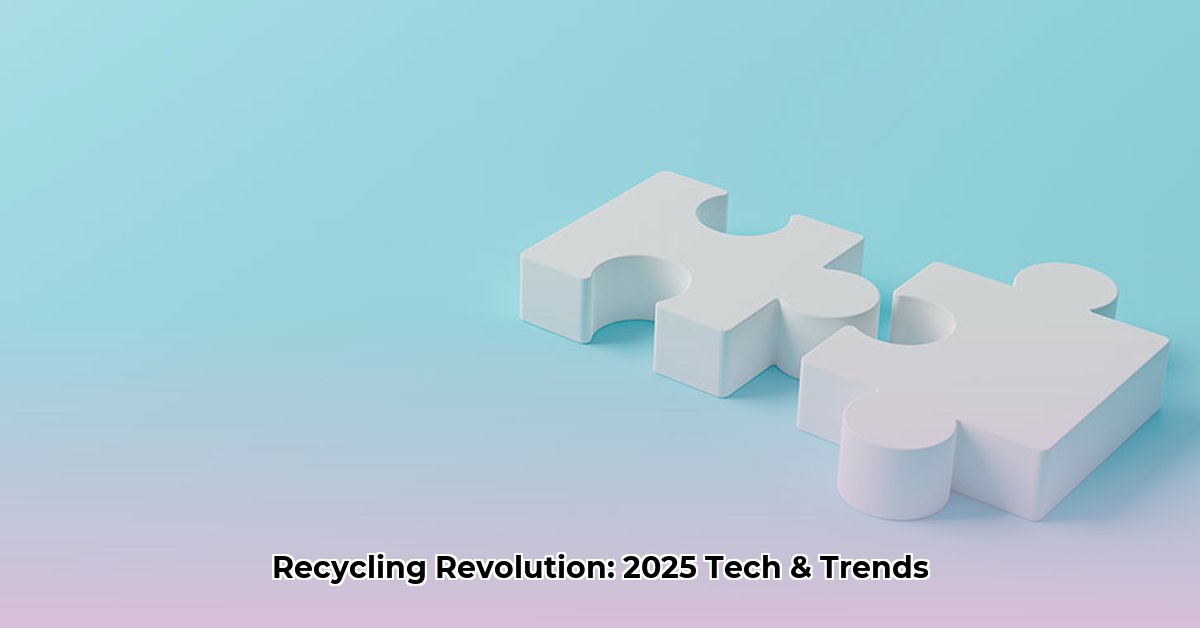Metal recycling is rapidly evolving, presenting significant opportunities for efficiency and sustainability. This article explores the advancements in metal recycling, highlighting the roles of companies, innovative recycling methods, future preparedness, and community sustainability efforts. Discover strategies to leverage new technologies, combat metal theft, and optimize recycling initiatives for a more sustainable planet.
Alter Recycling: 2025 Tech Advancements and Automation Strategies
The metal recycling sector is experiencing rapid transformation, driven by technological innovations and a growing focus on environmental responsibility. “Alter recycling” represents a smarter, more sustainable approach to reusing valuable materials.
Harnessing Automation and AI for Efficient Recycling Processes
Automation is at the forefront of modern metal recycling, with robotic systems and artificial intelligence (AI) playing a crucial role in enhancing efficiency and precision. Companies are making significant investments in these technologies to optimize material recovery and reduce waste.
- Increased Efficiency: Automated systems can sort and process scrap metal at a much faster rate than manual labor, increasing throughput and reducing processing times.
- Improved Quality: AI-driven systems can identify and separate different types of metals with greater accuracy. This leads to higher-quality recycled materials that meet stringent industry standards.
- Reduced Waste: By optimizing the recycling process, these technologies help minimize the amount of waste sent to landfills, contributing to a circular economy.
- Enhanced Safety: Automation reduces human exposure to hazardous materials and dangerous working conditions.
Consolidation and Market Dynamics in Metal Recycling
The metal recycling industry is undergoing consolidation, with larger companies acquiring smaller ones to meet the rising demand for recycled metals and comply with stricter environmental regulations. This trend is expected to continue, leading to:
- Increased Investment: More resources are allocated to research and development of innovative recycling technologies.
- Improved Infrastructure: Upgrades to existing facilities and construction of new, state-of-the-art recycling plants.
- More Reliable Supply Chains: Streamlined processes for collecting, processing, and distributing recycled metals.
- Economies of Scale: Reduced operational costs through optimized resource utilization and streamlined management.
Combating Metal Theft: Innovative Security Solutions
Metal theft poses a significant challenge to the metal recycling industry, resulting in substantial financial losses annually. Companies are implementing enhanced security measures, including:
- Improved Surveillance: High-resolution cameras and advanced monitoring systems to detect and deter theft.
- Tracking Systems: GPS tracking and RFID tags to monitor the movement of valuable materials.
- Data Analytics: Analyzing data to identify potential theft hotspots and predict future incidents.
- Blockchain Technology: Secure material tracking from origin to processing, preventing the sale of stolen metals.
- Collaboration with Law Enforcement: Sharing information and working with local authorities to apprehend thieves.
The industry is actively working to mitigate this issue.
Future Trends Shaping the Landscape of Metal Recycling
Several key trends are poised to significantly impact the future of metal recycling:
- Closed-Loop Systems: Aiming for a circular economy where materials are continuously recycled and reused, minimizing waste and maximizing resource efficiency, and reducing the need for virgin materials.
- Advanced Separation Technologies: Employing sensor-based sorting and AI to identify and separate different metals with greater precision, enhancing recycling effectiveness and minimizing contamination.
- Ethical and Transparent Supply Chains: Emphasizing the importance of knowing the origin of recycled materials and ensuring they are processed ethically, promoting sustainability and fair practices throughout the supply chain. This includes responsible sourcing and adherence to environmental and labor standards.
- Focus on Rare Earth Elements: Developing innovative methods for recycling rare earth elements from electronic waste, crucial for sustainable technology production.
- Increased Public Awareness: Educating consumers and businesses about the importance of metal recycling and promoting responsible disposal practices.
Economic and Environmental Benefits of a Thriving Metal Recycling Sector
An efficient and robust metal recycling sector provides numerous benefits to consumers, governments, and businesses:
- Consumers: Benefit from lower prices on products made with recycled materials, as recycled materials are often cheaper than virgin resources.
- Governments: Enjoy reduced landfill waste, a healthier environment, and decreased reliance on natural resource extraction.
- Businesses: Gain access to higher quality recycled materials, reducing their reliance on newly mined resources and improving their sustainability profile.
- Job Creation: Recycling industry generates numerous jobs in collection, processing, and manufacturing.
- Energy Savings: Recycling metals requires significantly less energy than producing them from raw ores.
Actionable Steps for a Sustainable Future in Metal Recycling
To foster a more efficient and sustainable future for metal recycling, various stakeholders can take specific actions:
| Stakeholder | Short-Term Actions | Long-Term Actions |
|---|---|---|
| Recycling Companies | Invest in automated systems and improve security measures to combat metal theft. Implement sustainable processing techniques to minimize environmental impact. | Develop closed-loop systems, fund research and development of advanced separation technology, and prioritize ethical sourcing. Collaborate with other companies to create industry-wide sustainability standards. |
| Governments | Implement stricter regulations, offer tax incentives to support recycling efforts. Enforce environmental regulations to prevent illegal dumping and pollution. | Invest in infrastructure that supports efficient recycling, fund research into sustainable solutions, and raise public awareness. Promote extended producer responsibility programs to incentivize manufacturers to design recyclable products. |
| Consumers | Practice responsible recycling and support companies that prioritize sustainability. Properly sort and prepare recyclable materials before disposal. | Demand products made from recycled materials, and educate yourself and others about the importance of metal recycling. Advocate for policies that promote sustainable consumption and recycling. |
How to Prevent Metal Theft in Recycling Facilities: A Comprehensive Strategy
Metal theft remains a persistent and costly challenge for the recycling industry, disrupting operations, reducing profits, and creating safety risks. Preventing metal theft requires a multifaceted strategy that combines robust physical security, advanced technology, and proactive community engagement.
Layered Security: Building a Fortress Against Theft
Implementing a layered security approach is essential for protecting valuable materials. This involves investing in:
- Perimeter Fencing: High-security fencing with anti-climb features to deter unauthorized access.
- Intrusion Detection Systems: Advanced alarm systems and sensors to detect and alert to unauthorized entry, including vibration sensors on fences and infrared beams.
- Advanced Surveillance: High-definition cameras with thermal imaging and license plate recognition, strategically placed for comprehensive monitoring, including remote monitoring capabilities.
- Enhanced Illumination: Bright, energy-efficient LED lighting to discourage theft by improving visibility during nighttime hours.
- Security Personnel: Trained security guards to patrol the facility and respond to security breaches.
Leveraging Technology: Smart Surveillance and Tracking Systems
Technology plays a crucial role in enhancing security efforts. Consider integrating:
- GPS Tracking: Real-time electronic tracking of valuable materials from entry to processing, providing alerts for unauthorized movement.
- RFID Tags (Radio-Frequency Identification): Unique identifiers for materials for easy tracking and identification throughout the recycling process.
- AI-Powered Analytics: Video analytics systems that flag suspicious activity, such as loitering or unauthorized vehicle entry, providing real-time alerts to security personnel.
- Drone Surveillance: Using drones equipped with cameras for regular aerial patrols of the facility perimeter.
Building Community Partnerships: Collaboration for Enhanced Security
Establishing strong relationships with law enforcement, local residents, and other recycling facilities is vital. This collaborative approach involves:
- Regular communication with law enforcement: Sharing information about suspicious activity and theft patterns, participating in local crime prevention programs.
- Community awareness campaigns: Educating the public on the impacts of metal theft and encouraging them to report suspicious activity.
- Neighborhood Watch Programs: Partnering with local residents to establish neighborhood watch programs around the recycling facility.
- Information Sharing with Other Facilities: Collaborating with other recycling facilities to share information about theft trends and security best practices.
Legal and Regulatory Compliance: Ensuring a Secure Foundation
Adhering to regulations minimizes vulnerabilities. This includes:
- Detailed Records: Maintaining accurate logs of all materials received, processed, and sold, including detailed descriptions, quantities, and supplier information.
- Seller Verification Processes: Implementing checks to validate scrap metal suppliers, including verifying identification and checking for criminal records.
- Transparent Payment Methods: Utilizing traceable payment systems, such as electronic transfers, to reduce money laundering opportunities and track transactions.
- Compliance with Local Ordinances: Adhering to local regulations regarding scrap metal transactions and reporting requirements.
Employee training on security protocols is also essential.
Metal Recycling Innovations in Urban Environments: Sustainable Solutions
Urban environments present unique challenges and opportunities for metal recycling. Innovative solutions are essential for maximizing efficiency and minimizing environmental impact in these densely populated areas. Collaboration between governments, recyclers, businesses, and consumers is crucial for successful implementation.
AI-Powered Sorting: Revolutionizing Recycling Accuracy
AI-powered sorting systems are transforming metal recycling in urban areas, increasing efficiency and improving the quality of recycled materials. These systems reduce contamination, enhance profitability, and minimize manual labor by:
- Identifying different types of metals with high precision: Using advanced sensors and machine learning algorithms.
- Removing non-metallic contaminants: Ensuring the purity of recycled metal streams.
- Adapting to changing waste streams: Continuously learning and improving sorting accuracy.
- Operating 24/7: Maximizing throughput and reducing downtime.
Robotics: Automating Hazardous Material Handling
- How To Create Free Electricity Using Home Renewable Sources - January 30, 2026
- How to Produce Electricity at Home for Energy Independence - January 29, 2026
- How To Create Electricity At Home For Energy Independence - January 28, 2026
















